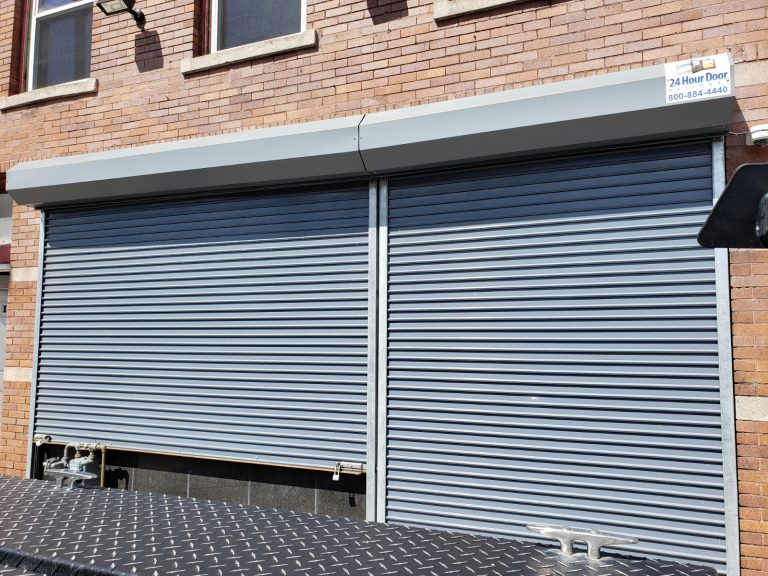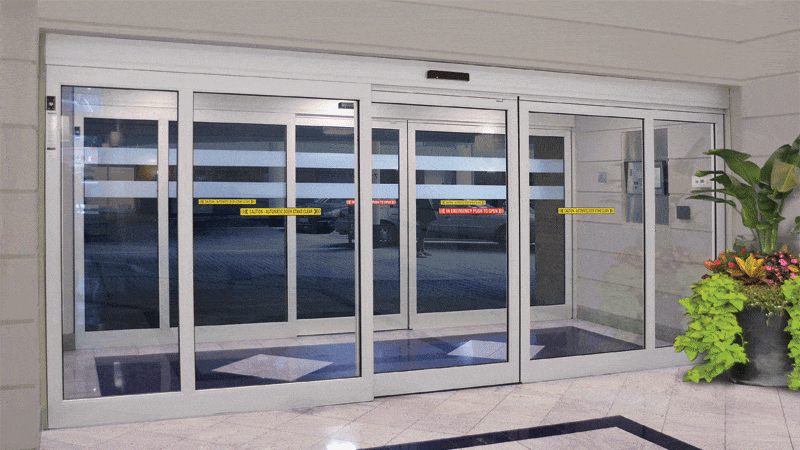What Is The Difference Between Residential And Commercial Garage Doors?
In the world of garage doors, there's a significant divide between residential and commercial options. Whether you're a homeowner looking to upgrade your garage door or a business owner needing a robust solution for commercial purposes, understanding the differences is crucial. This article will explore the intricacies of residential and commercial garage doors, providing you with all the information you need to make an informed decision.
Understanding Garage Doors: An Overview
Garage doors are more than just an entryway; they're an essential part of your property’s security and functionality. While they serve the same basic purpose—providing access to vehicles—they differ vastly in terms of design, durability, and application.
What Are Residential Garage Doors?
Residential garage doors are typically designed for homes. They come in various styles, materials, and designs to complement the architecture of a house. Homeowners often prioritize aesthetics alongside functionality when selecting these doors.
What Are Commercial Garage Doors?
Commercial garage doors are built for businesses and industrial applications. They're usually larger, more durable, and designed to handle heavier usage compared to their residential counterparts. Functionality, security, and efficiency are often top considerations for commercial entities.
Residential vs. Commercial Garage Doors: Key Differences Explained
When it comes down to it, several key differences exist between residential and commercial garage doors that you should consider before making a purchase.
1. Size Matters: Dimensions of Garage Doors
Residential Garage Door Sizes
- Typically range from 7 to 8 feet high.
- Standard widths include 9, 10, 12, 14, or 16 feet.
Commercial Garage Door Sizes
- Can reach heights of over 14 feet.
- Widths commonly found are 16 feet or more; some can be custom-made even wider.
2. Materials Used in Construction
Residential Options
- Often made from wood, fiberglass, or steel.
- Aesthetic finishes like paint or stain are common.
Commercial Options
- Usually constructed from heavy-duty steel or aluminum.
- Designed for longevity and resilience against harsh conditions.
3. Insulation Properties
Residential Insulation
- Many homeowners opt for insulated doors to maintain energy efficiency.
Commercial Insulation
- Insulation might not be as critical unless the climate directly affects operations; however, insulated options are available for temperature-sensitive environments.
4. Design Variability
Aesthetic Designs for Homes
- Variety includes carriage-style doors and modern sleek designs.
Functional Designs for Businesses
- Focus on practicality over aesthetics; rolling steel doors are common in warehouses.
5. Durability: How Long Will It Last?
commercial door solutions CincinnatiWhen it comes to durability:
- Residential garage doors generally last about 15 years with proper maintenance.
- Commercial versions can last significantly longer due to their robust construction but require regular maintenance checks.
6. Security Features Available
Security is paramount:
- Residential models may include basic locking mechanisms.
- Commercial models often come equipped with advanced security features such as multi-point locks and high-grade materials that deter break-ins.
7. Maintenance Requirements Comparison
Maintenance varies greatly:
- Residential garage doors may require occasional lubrication and inspection.
- Commercial units demand more extensive maintenance due to higher usage levels—think regular inspections by professional services like "commercial garage door repair near me."
8. Cost Implications: What You’ll Pay
Let’s talk dollars: | Feature | Residential | Commercial | |-----------------------------|--------------------------------------|-------------------------------------| | Initial Cost | Generally lower | Higher due to size & material | | Maintenance Costs | Less frequent | Regular professional check-ups required | | Replacement Parts | Readily available | May require specialized parts |
9. Operational Mechanisms: Manual vs Automatic
Residential options often include automatic openers but can also be manual:
Commercial units frequently feature automatic systems capable of handling high traffic volumes efficiently.
10. Installation Process: DIY or Professional?
Installing a residential door can sometimes be a DIY project depending on the complexity:
However, with commercial installations: Professional installation is usually recommended due to their weight and complexity.
11. Environmental Considerations: Weather Resistance
Both types need weather-resistant properties:
Residential options may include seals against drafts; commercial versions might have additional protective coatings against rusting or corrosion depending on exposure levels.
12. Noise Levels During Operation
Noise can be a concern:
Homeowners prefer quiet operations—most residential models accommodate this preference:
In contrast:
Commercial garages might not prioritize noise reduction given their operational nature—loud sounds could signify busy environments!
13. Customization Options Available
Customization opportunities exist across both categories:
For homes: Homeowners can choose colors, materials & styles that fit their aesthetic preferences:
For business needs: The focus is typically on function—custom sizes are common based on specific operational requirements rather than style!
14. Safety Features Integrated into Design
Safety is paramount in both categories!


Residential options might include safety sensors that prevent closing if something obstructs the path:
In contrast:
Commercial units may incorporate heavier-duty safety mechanisms due to increased risks associated with industrial environments!
15. Lifespan Expectations Between Categories
As mentioned earlier: An average lifespan expectation ranges between 15 years (for residential) up until more than two decades (for commercial)—dependent on proper care too!
16. Local Regulations Impacting Choice
Local building codes play an essential role in determining what type of garage door you can install!
Consult local regulations regarding necessary specifications before making any decisions—especially vital for businesses!
FAQs – Frequently Asked Questions
1. What should I consider when choosing between residential and commercial garage doors?
Consider your needs - space requirements, frequency of use & desired durability!
2. How do I find reliable "commercial garage door repair near me"?
Search online for reviews from other customers & ask recommendations within your network!

3. Can I install a commercial garage door myself?
While possible—it’s highly recommended hiring professionals given their complexity! Safety first!
4. Why does my residential door make noise during operation?
Check roller bearings & lubricate them regularly—consider replacing if they’re worn out!
5. How often should I maintain my garage door?
Aim for at least once annually—more frequently if used heavily (especially important for businesses)!
6. What insulation options exist for each type?
Many insulated models exist across both categories but tailored specifically based on user needs/requirements!
Conclusion
In summary, understanding the differences between residential vs. commercial garage doors is fundamental when deciding what suits your needs best! From size differences and material choices through maintenance requirements—all play critical roles in ensuring an optimal choice suited precisely towards either home or business applications alike! Remember always consult with professionals before undertaking any significant renovations related directly toward these structures—as informed decisions lead ultimately toward greater long-term satisfaction overall!
So whether you're searching “commercial garage door repair near me” or considering upgrades at home—you now possess all relevant knowledge necessary moving forward confidently into this arena!